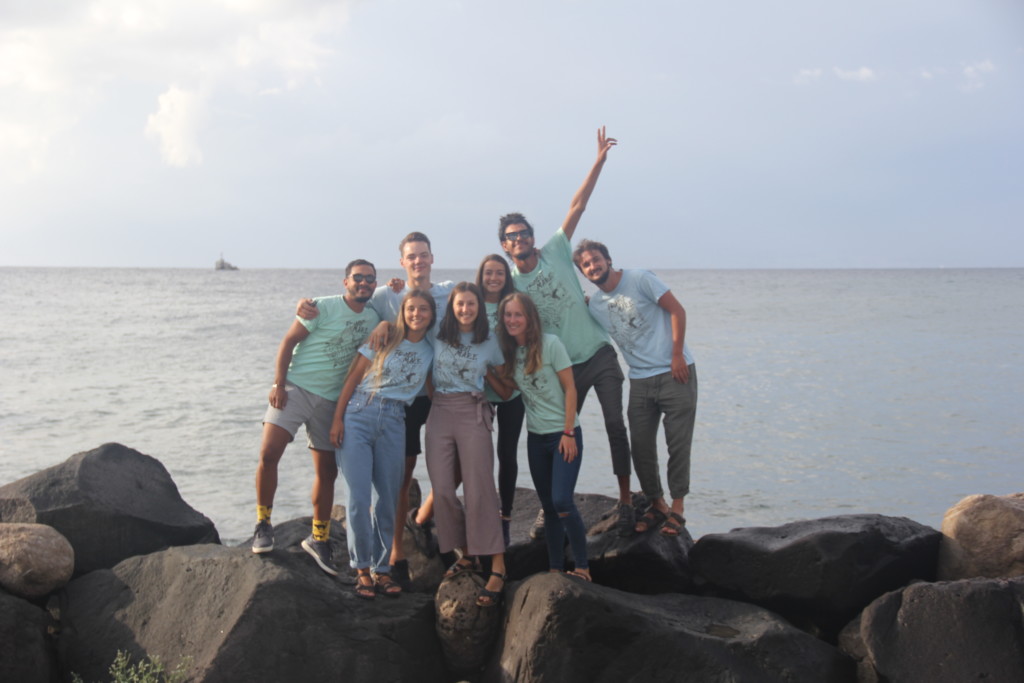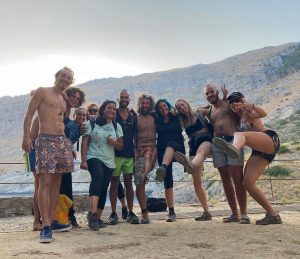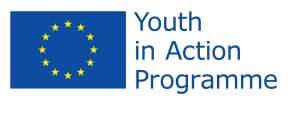Updated on December 15, 2022
From Volunteer to Researcher
Buongiorno!
After a few months of dedicating myself as a volunteer in Italy, I would like to share with you my personal learning experience through project M.A.R.E.
In project M.A.R.E., a part of the work is assigned depending on your own knowledge and skills. Thus, apart from the main activities, I had the opportunity to manage a couple of small scientific research projects in Ieranto Bay. This experience allowed me to be in contact with my passion while gaining knowledge and honing my skills for my professional future.
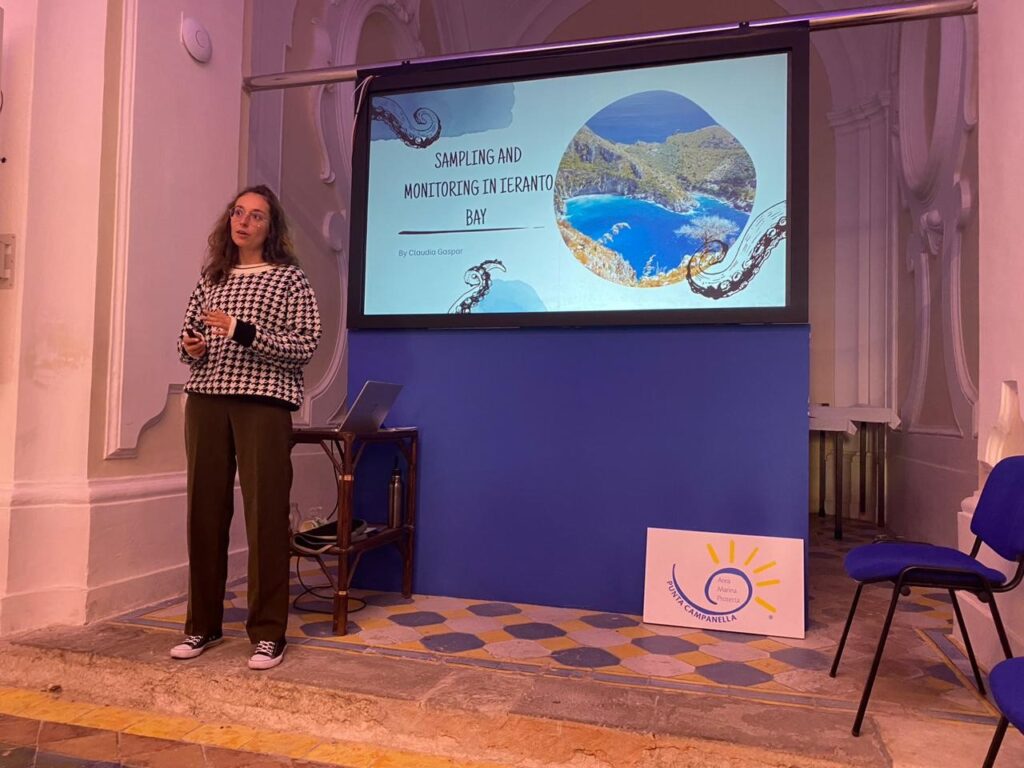
Ieranto Bay is one of the better-preserved places of the MPA of Punta Campanella, thanks to the constant presence of the volunteers of Project M.A.R.E. as well as the presence of the park’s operators. The place is accessible by land, but also by sea, in which case the access to the bay is very restricted: aside from a few exceptions, it is prohibited to enter with a motorboat, and it is strictly prohibited to put the anchor. These restrictions allow the park to minimize human impact in the bay, with the aim of protecting its ecosystems and its biodiversity.
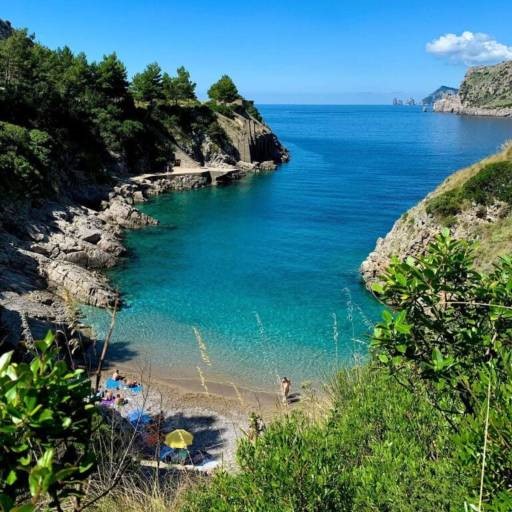
For the first project Andrea Ivančić (a fellow Croatian volunteer) and I coordinated, we had to take some samples of the algal communities to create a marine herbarium of Ieranto Bay. This project started with the aim of actualizing our data and improve our knowledge of the species presents in the bay. To realize this project, we operated in two phases: in the first, we started by collecting samples while snorkeling, before identifying them. The second phase consisted of squeezing and drying the samples, which was done with a wooden press, cotton tissues and newspapers. This whole experience has greatly improved my ability to recognize different species of algae and has allowed me to pay attention to logistical requirements, as I have been responsible for organizing the necessary material for the project to go forward.
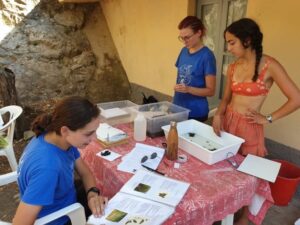
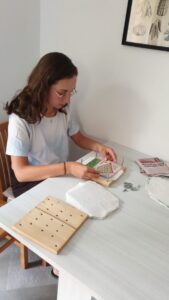
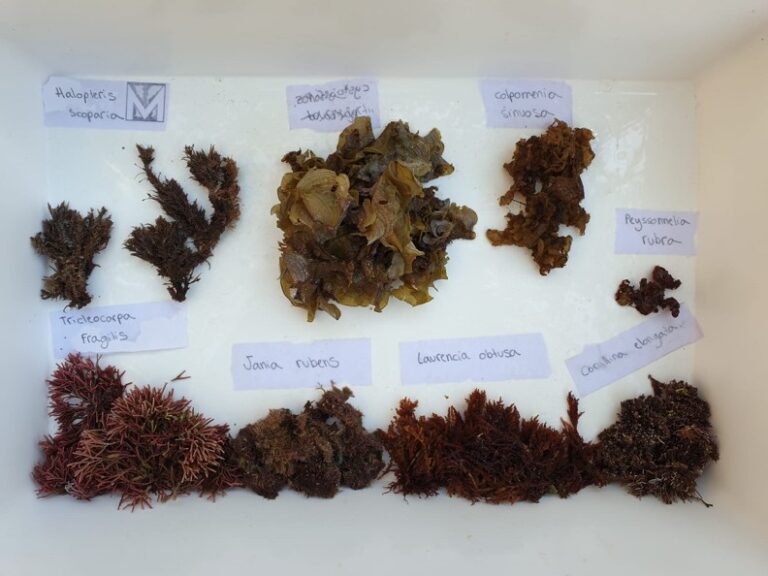
The second project I managed, together with Mimi Sgambati (coordinator of the Project M.A.R.E.), is a visual census of fish using a protocol of MPA engage. MPA engage is a project coordinated by the Spanish National Research Council (CSIC : Consejo Superior de Investigaciones Científicas) that offers 11 protocols to evaluate the impact of climate change in marine protected areas. Those protocols allow the MPAs of the Mediterranean Sea to assess the impact of climate change through the sampling of different environmental factors (temperature, Posidonia meadows, fish,…) as well as through the collection of the Local Ecological Knowledge obtained by interviewing experienced local divers and fishermen.
In our project, the different protocols have been attributed to the volunteers that were interested, each of us coordinating one, or even two protocols, while helping each other to collect the data. For the MPA of Punta Campanella, this was the first participation in the MPA Engage program, but we would like to supervise the applications of those protocols every year, by the future volunteers, to be able to collect data that will allow us to understand how climate change affects Ieranto Bay. This project has been fruitful for me, as it allowed me to acquire experience in the application of research protocols, as well as honing my skills in scientific diving and sampling.
These two experiences allowed me to grow, to improve skills very relevant to my field of work, to accumulate knowledge and self-confidence, all the while learning to work as a team.
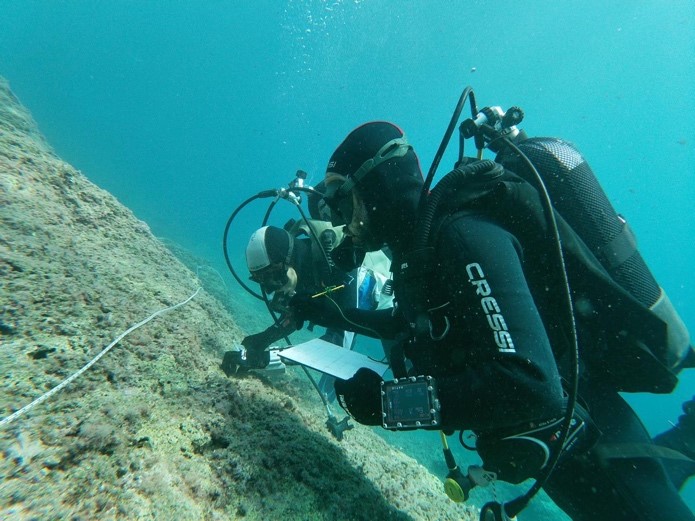
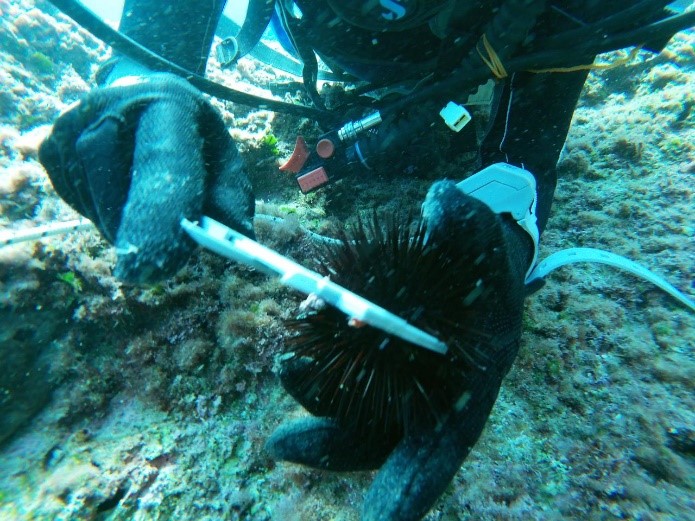
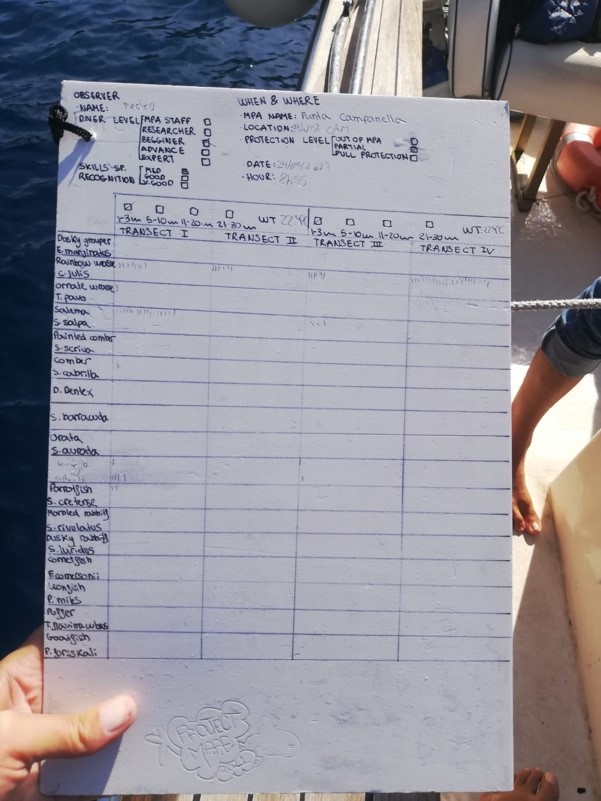
— Claudia Gaspar García
Category: Diving, Ieranto Bay, Marine Biology and Snorkeling


